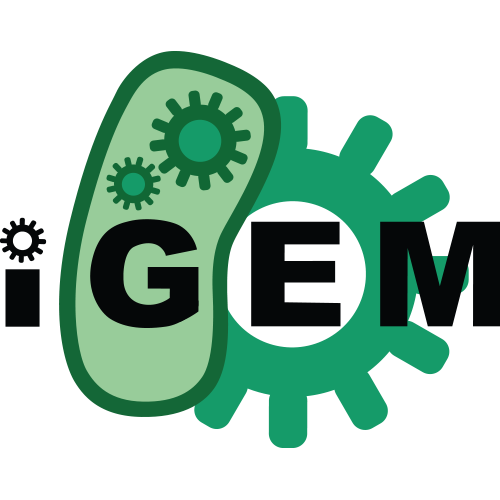Source:
Generated By: https://synbiohub.org/public/igem/igem2sbol/1
Created by: Julius Rabl
Date created: 2008-10-28 12:00:00
Date modified: 2015-05-08 01:10:22
IPTG-on tetracycline-off pulse generator with LacI mutant (R197A) and TetR expression cassette
| Types | DnaRegion |
| Roles | engineered_region Device |
| Sequences | BBa_K142024_sequence (Version 1) |
Description
IPTG-on/tetracycline-off switch circuit
Short description:
This part contains a tetracycline-controlled lacI IS expression cassette followed by a constitutive TetR expression cassette. The lacI IS mutant is almost identical to the lacI transcriptional regulator except for the difference that it is not able to bind IPTG or allolactose due to a mutation; it therefore can not be activated by induction with these substances. Since it recognizes the same motif in the lac promotor region, it strongly represses transcription of all genes regulated by promotors with lacI binding site even if IPTG or allolactose are present. It is used to terminate the expression of proteins under lac control if IPTG can not be removed from the cell rapidly.
Detailed description:
=LacI IS mutants are uninducible repressors of lac-controlled promotors=
Expression of the lac operon in E. coli is tightly controlled by lacI, a protein, which binds to a repressor binding site within the promotor and disables transcription by obscuring the promotor region. When bound to DNA, lacI is in the tetrameric form, which consists of two dimers interacting at the end distal from the DNA binding site. Upon binding of allolactose or IPTG, the tetramer breaks down into two dimers and the affinity for the repressor binding site is greatly reduced; the lacI IPTG complex will diffuse away from the repressor binding site, leaving the promotor accessible. As a result of decades of genetic and structural studies, the function of lacI is now understood on the molecular level (1, 2). Mutational experiments have identified residues, which abolish IPTG response upon mutation (3). Furthermore, the x-ray crystal structure of lacI with bound IPTG has allowed the identification of residues that interact with IPTG and which are promising targets for mutagenesis (1).
[[image:jr_pulsegen_1.jpg|frame|none|
Figure 3: A Lac repressor tetramer, residues R197 and T276 are shown in red. B IPTG bound to the inducer binding site of the lac repressor, residues R197 and T276 are shown in green. Molecular graphics was generated from coordinate set 1lbh (1) using UCSF Chimera.]]
We decided to mutate residues R197 and T276, which are located in the IPTG binding groove, contact IPTG and have been shown to produce the lacI IS mutation in previous genetic experiments. We decided to generate a set of eight mutated lacIs, in which we replaced either R197 with alanine or phenylalanine or T276 with alanine or phenylalanine or both in all possible combinations.
lacIIS-1: R197A
lacIIS-2: R197F
lacIIS-3: T276A
lacIIS-4: T276F
lacIIS-5: R197A T276A
lacIIS-6: R197A T276F
lacIIS-7: R197F T276A
lacIIS-8: R197F T276F
All mutants appeared to be equally efficient in preliminary genetic experiments with full repression even at elevated concentrations of 10mM IPTG. Please see the chapter on the switch circuit in the ETH 2008 Wiki for details.
=Purpose of this BioBrick=
This BioBrick is based on BioBrick I763026 in the original form. As sequencing by Caltech has shown that BioBrick I763026 did not have a promotor, we have added tetracycline-inducible promotor R0040 to the Biobrick and added TetR expression cassette I739001 froming device K142047 before subjecting it to site-directed mutagenesis. Expression of the mutant LacI IS (and silencing of lac-controlled gene expression) can therefore be initiated by addition of inducer tetracycline.
References:
(1) Lewis, M., Chang, G., Horton, N. C., Kercher, M. A., Pace, H. C., Schumacher, M. A., Brennan, R. G., and Lu, P. (1996) Crystal structure of the lactose operon repressor and its complexes with DNA and inducer. Science 271, 1247-54.
(2) Friedman, A. M., Fischmann, T. O., and Steitz, T. A. (1995) Crystal structure of lac repressor core tetramer and its implications for DNA looping. Science 268, 1721-7.
(3) Suckow, J., Markiewicz, P., Kleina, L. G., Miller, J., Kisters-Woike, B., and Muller-Hill, B. (1996) Genetic studies of the Lac repressor. XV: 4000 single amino acid substitutions and analysis of the resulting phenotypes on the basis of the protein structure. J Mol Biol 261, 509-23.
Notes
During site-directed mutagenesis, the codons to be mutated were replaced with the most highly utilized codons in E. coli to prevent complications from the use of rare codons. The lacI IS sequences were analyzed for BioBrick restriction sites within the coding sequence to ensure their compatibility.Source
The pulse generator precursor has been assembled from tetracycline-controlled lacI generator K142046 and the constitutive TetR expression cassette I739001 using standard cloning techniques. The lacI IS mutant presented derives from site-directed mutagenesis, which was performed on the precursor K142047 by PCR, subsequent DpnI digest and transformation. The following primers were used for mutagenesis:R197F forward
CGGCGCGTCTGTTTCTGGCTGGCTG
R197A forward
CGGCGCGTCTGGCGCTGGCTGGCTG
R197F reverse
CAGCCAGCCAGAAACAGACGCGCCG
R197A reverse
CAGCCAGCCAGCGCCAGACGCGCCG
T276F forward
GGATACGACGATTTTGAAGACAGCTC
T276A forward
GGATACGACGATGCGGAAGACAGCTC
T276F reverse
GAGCTGTCTTCAAAATCGTCGTATCC
T276A reverse
GAGCTGTCTTCCGCATCGTCGTATCC
| Access | Instance | Definition |
| public public | BBa_K142016 BBa_I739001 | BBa_K142016 BBa_I739001 |
| Sequence Annotation | Location | Component / Role(s) |
| BBa_K142016 BBa_I739001 | 1,1345 1354,2236 | BBa_K142016 BBa_I739001 |
